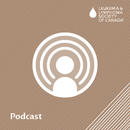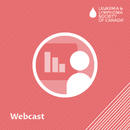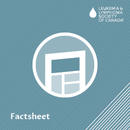Resource Library
Showing 11 to 20 of 64 results
Jacqueline Galica an oncology-certified Registered Nurse with over 20 years of experience in oncology. She is currently an Assistant Professor at the Queen’s University School of Nursing, where her research program focuses on the psychosocial concerns – including fears of cancer recurrence - of post-treatment cancer survivors.
What started as a normal trip to the cottage ended up leading Tom to take a trip to the hospital- where he was diagnosed with myelodysplastic syndrome. Tom shares his blood cancer experience and how learning about his diagnosis, staying positive, and staying active are what helped him through the difficult times of treatment.
Graft vs Host Disease, known as GvHD, is a side effect of a life saving procedure. People who undergo an allogeneic stem cell transplant - when a donor's stem cells are transplanted into the recipient - can experience either acute or chronic GvHD. In this podcast, listen to blood cancer survivor Libby Goszer, who describes her experience living with…
In this "Innovation in Research" webcast recording, you will learn about the community of microbes (bacteria, fungi, viruses and their genes) living within our digestive tracts, known as the “gut microbiome,” and how it can play a role in blood cancer treatment and quality of life.
RNA is more than just DNA's lesser-known cousin. Dr. Katherine Borden, Professor, Pathology, Cell Biology at the Institute for Research in Immunology and Cancer, University of Montreal and Dr. Sarit Assouline, chief of the Division of Hematology at the JGH and Senior Investigator in the Lady Davis Institute at the JGH, unpack the scientific wonder that…
Cancer treatments can disrupt sleep. Find out how treatments can affect sleep and what strategies you can use to sleep better.
In partnership with Cell Therapy Transplant Canada (CTTC), The Leukemia & Lymphoma Society of Canada (LLSC) is pleased to provide this special, 90-minute webcast on the latest innovations in blood cancer treatment in Canada.
Learn practical ways to be a proactive agent of change in your own cancer experience or that of your loved one. This webcast was led by Geoffrey Molle and Natasha Sani, from the Community Services Team at LLSC, and will include people impacted by blood cancer. They will offer tips and resources to participate in your own care decisions. Called “self…
Acute myeloid leukemia (AML): Expanding access to novel treatment and care, 2024 Leukemia Conference
Acute myeloid leukemia (AML) is a type of cancer that forms in blood cells and bone marrow that progresses rapidly if untreated. In this presentation, Dr. Brett Houston, a hematologist at the University of Manitoba, will speak about her work in clinical trials in finding ways to optimize care and improve outcomes for patients affected with acute leukemia,…
Acute lymphoblastic leukemia (ALL) affects immature white blood cells called lymphoblasts and can progresses quickly without treatment. Dr. Dawn Maze, a member of the Leukemia Program and the Elizabeth and Tony Comper MPN Program at the Princess Margaret Cancer Centre, addresses treatment of acute lymphoblastic leukemia, advances in research and management…


